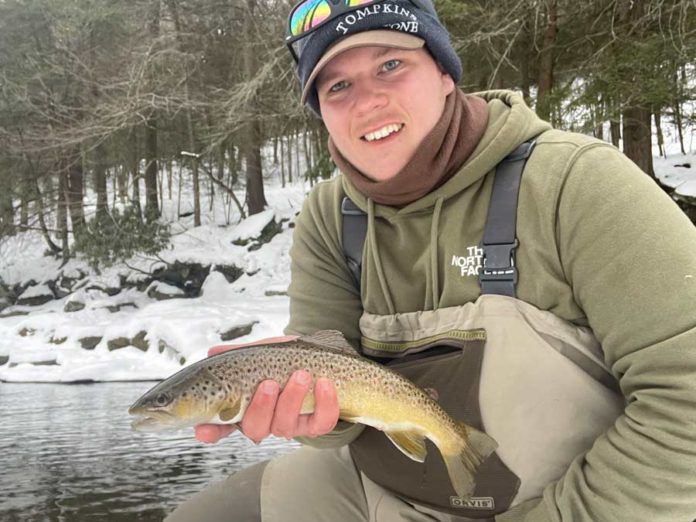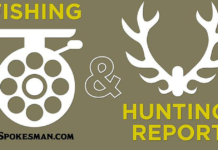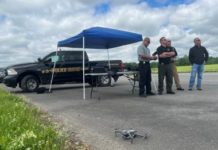Written by: Stas Borowski
All photos courtesy Stas Borowski
There is something about fly fishing that has caught my attention ever since I was a boy. I am obsessed with the hunt for that one elusive trout, the friendships that are made with other people, being able to learn something new every time I am on the water, releasing a fish for the next fisherman, and more. These are just a few reasons why I am addicted to the sport, but one of the most important for me is that it keeps me from returning to the old, destructive addiction I battled for many years.
I was lucky enough to grow up only a few minutes away from, Roscoe, New York, known as “Trout Town USA.” As a kid, I was surrounded by some of the best trout fishing east of the Mississippi, and my father got my involved in fishing at a very young age. We spent a lot of time on local ponds or floating down the Delaware river, catching whatever species we could. My parents owned a local bar and restaurant, and what do many anglers want to do after a hot day of fishing? That’s where I first heard about fly fishing. A good friend of my parents and avid fly fisher would come to the bar with his fly rods, and taught me how to cast when I was just nine years old. There was something about trying to get that line to lay out smoothly that I fell in love with.
For my tenth birthday, my parents had got me my first fly rod, and I could not wait to try it out. Callicoon Creek, which was stocked with brown trout, ran through our backyard, so I grabbed my rod, tied on a grasshopper, and headed to the creek. I found a section of faster water with a small pool at the end and started casting. I made a few casts, and boom!, a 15-inch brown came up and smacked my fly. I had no clue what I was doing, but after the fish made a few runs, the beautiful trout came to hand, and I was speechless. That was the moment the sport entered my blood forever.

For the next four years, the man who first showed me how to cast took me with him almost every day during the fishing season. From the big, fast waters of the West Branch of the Delaware to the freestone creeks of the Willowemoc and Beaverkill, I watched, learned, and took in all the information I could about fly fishing.
By the time I was fifteen, my fly fishing skills had really improved, but I didn’t have any other friends my own age who fly fished. Seeking connection, I soon found myself hanging out with the wrong group of teenagers, drinking beer and smoking marijuana. I had felt different and like an outcast, so to hide those feelings, I started drinking and smoking, as well, not realizing where this life would take me. Soon, fly fishing fly fishing played second fiddle to drinking and smoking, and after a while I moved on to harder stuff.
My parents were always there for me growing up. They gave me everything I could ask for, had a good name in the community, and very hard working people. But I failed as a teenager to express my feelings to them, bottled them up, and drugs became my way to forget. At the time, I didn’t know what addiction was, and I didn’t recognize that my behavior was becoming a real problem.
When I was 16, I walked into a house to buy some weed and people I knew using prescription pills. They offered me a few to try, and I did. The feeling was like no other. It made me forget about everything that was happening in the outside world, and from that moment on I started chasing that high. At the time I didn’t know that a life-long battle was ahead of me.

I kept my problem hidden until I was 18, when I moved out of my parents’ houseand tried to start a life on my own. But this addiction had made me forget the important things in life. I had forgotten that feeling of hooking a beautiful brown trout, watching the fish come up and inhale that fly, and then holding the sparkling gem in my hands before releasing it. Eventually, my prescription-pills habit became too expensive, and I fell into heroin. This is when my life took a turn for the worse.
Eventually, I sold all my fishing gear for little to nothing, just for the next high. My dreams of traveling the world to fly fish were gone. Hopes of meaning something in the fly fishing community went out the window. Every day, I would wake up and be concerned with one thing—using drugs to bury my feelings. I stole from friends and family, and even worse, stole peace of mind from the ones who loved me.
I watched all my friends progress in life—finishing college, starting their own businesses, buying their own houses—while I was stuck in the same place I had been since I was sixteen. Eventually, not even the drugs could stop my feelings of being alone and uncomfortable. I knew something had to change, so I took action. first by going to my family and telling them I want help and then allowing them to get it for me. In December 2017, I entered a residential recovery group that changed my life forever. I lived there until March 2020, and I learned how to live a happy and purposeful life without drugs or alcohol.

When I came back home to start looking for a job, an apartment, a way to start my life over again, there was one thing I really wanted to do—go fly fishing. When I opened the local paper and saw the annual “first cast” at Junction Pool in Roscoe, I knew I had to get out there. I grabbed what gear I could find lying around at my parents, old beat up rod and a small pack, stopped and bought a few flies, and headed to my favorite trout hole. I didn’t take long before it all came back to me, and soon I was hooked up on a beautiful brown. Those same feelings I’d had when I was ten years old came flooding back, and I told myself I would never let this go again. It made me forget about everything that I been through, made me feel peace, serenity, hope, and simple happiness. That’s when I knew that fly fishing was going to help me remain sober and alive.
Soon my daily life consisted of work, meetings at the group, and fly fishing—lots and lots of fly fishing. I was on the water every chance I could. Eventually I wanted to get new gear, so I made my way to Beaverkill Angler for a new 5-weight rod, some Orvis waders and boots, and everything else I needed. 2020 was a season I will never forget. I fished all rivers I could, from the East Branch where I caught my personal best trout, to the Willowemoc, the Main Stem, and the Beaverkill. You name it, and I fished it. And being clean and sober made me appreciate all the little things along the way, such as making some new friends and learning new things.
A couple weeks after the season ended, I did something I never thought I would: I celebrated three years without any drugs or alcohol. And although it was not easy, the past year showed me that fly fishing and everything that comes with it is addicting in its own and is helping me remain humble and sober. Listening to the Orvis podcast, reading articles, and learning from the guys at the local fly shop have helped me catch fish, but they have also helped me remain on the right path. At twenty-five years old, I have faith that my dreams to travel to other parts of the world to catch trout will happen, and faith that my story will help inspire others. I don’t want anyone else to allow an addiction to take them from what they love.
Credit: Source link































